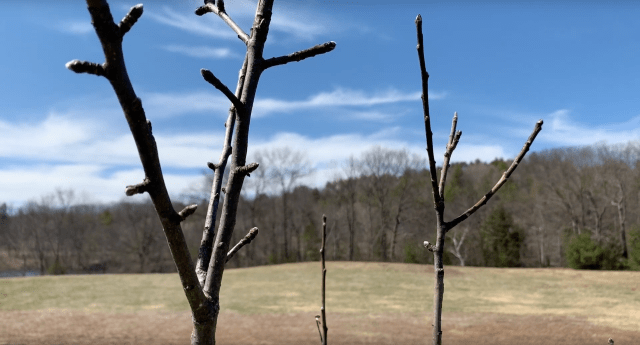Guest Bloggers: Jadyn Malone 25’ and Maya Beauvineau 26’
Sustainability is vitally important to the well-being of both Dartmouth students and the wider Dartmouth community. Impacts from climate change are already being felt in every corner of the world, including the Upper Valley and the varied other places that Dartmouth students call home. Many people today, and especially young people, are suffering from eco-anxiety, a chronic fear of environmental doom. Climate change often feels like such an enormously overwhelming problem that students feel they don’t have the resources to engage with it. We want Dartmouth students to know that their voices are important and that they can have a real impact by supporting the College’s adoption of ambitious sustainability goals and strategies.
What you can do:
- Participate in intersectional Earth Month events around campus! – Try the public talk by the Deer Park Monastics on “Engaged Mindfulness for a Creative and Spiritual Response to the Climate Crisis” on Friday, April 21st at 1:00 in Occom Commons. No registration is required, but seating may be limited.
- Show Dartmouth leadership your support for bold climate action! – Complete this poll to help us generate ideas and energy for student-led intersectional climate action on campus.
- Minimize your impact on the environment – Try using less single-use plastic, using energy efficient light bulbs, turning off your computer at night, using reusable coffee cups and water bottles, printing less paper, go paperless where you can, and buying produce from local farms.
Tips to help manage eco-anxiety:
- Let yourself feel all the feelings – it can be a lot, but recognizing them is the first step in helping your process them.
- Settle your nervous system – mindfulness and breathing practices can be helpful in bringing you back to baseline when you feel like you might be falling into a doom and gloom hole.
- Talk to others – find communities of other folks experiencing climate emotions to talk with. If it’s too much for your friends or loved ones to discuss (and it might be for some), there are online climate cafes where you can speak freely with others who share similar feelings and concerns.
Why it matters:
- Right now is a CRITICAL moment – Climate change impacts everything, from physical to mental to economic well-being, and from individual to international security. The US has a climate goal of cutting greenhouse gas emissions 50% by 2030, yet our emissions rose 1.3% in 2022 (Rhodium Group). AND Climate-related disasters are costly, in lives and money: the US lost $165 BILLION in 2022 alone, due to climate-related disasters (NOAA).
Through the Our Green Future process, Dartmouth has a window of opportunity to adopt ambitious sustainability goals NOW.
BOLD climate action grows from the ground up – Climate solutions require bold leadership, but in order for our institutional and world leaders to adopt ambitious climate action goals, they must feel support and pressure from us! We must NORMALIZE climate conversation, SUPPORT each other, and create opportunities to CELEBRATE the beauty our Earth brings to our lives, so that we are able to ACT to protect our future as a community.
Thanks, and here is to a healthy Earth!
References:
- https://www.sustainability.dartmouth.edu/ogf-update
- https://www.npr.org/2023/01/10/1147986096/extreme-weather-fueled-by-climate-change-cost-the-u-s-165-billion-in-2022
- https://rhg.com/research/us-greenhouse-gas-emissions-2022/
- https://www.npr.org/2021/10/23/1047753592/anxiety-from-climate-change-isnt-going-away-heres-how-you-can-manage-it










